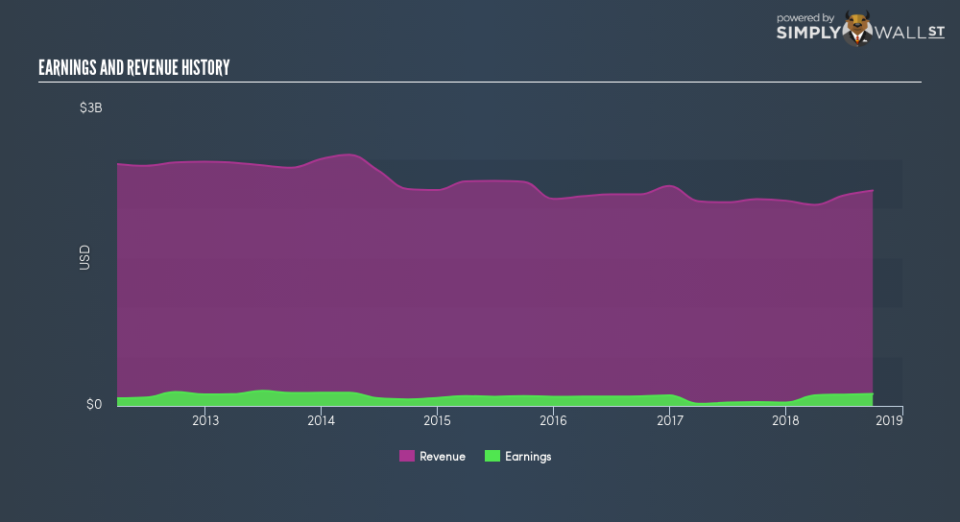Before You Buy Universal Corporation (NYSE:UVV), Consider Its Volatility

If you own shares in Universal Corporation (NYSE:UVV) then it’s worth thinking about how it contributes to the volatility of your portfolio, overall. In finance, Beta is a measure of volatility. Volatility is considered to be a measure of risk in modern finance theory. Investors may think of volatility as falling into two main categories. The first type is company specific volatility. Investors use diversification across uncorrelated stocks to reduce this kind of price volatility across the portfolio. The second sort is caused by the natural volatility of markets, overall. For example, certain macroeconomic events will impact (virtually) all stocks on the market.
Some stocks are more sensitive to general market forces than others. Beta is a widely used metric to measure a stock’s exposure to market risk (volatility). Before we go on, it’s worth noting that Warren Buffett pointed out in his 2014 letter to shareholders that ‘volatility is far from synonymous with risk.’ Having said that, beta can still be rather useful. The first thing to understand about beta is that the beta of the overall market is one. A stock with a beta greater than one is more sensitive to broader market movements than a stock with a beta of less than one.
View our latest analysis for Universal
What UVV’s beta value tells investors
With a beta of 0.91, (which is quite close to 1) the share price of Universal has historically been about as voltile as the broader market. While history does not always repeat, this may indicate that the stock price will continue to be exposed to market risk, albeit not overly so. Many would argue that beta is useful in position sizing, but fundamental metrics such as revenue and earnings are more important overall. You can see Universal’s revenue and earnings in the image below.
Does UVV’s size influence the expected beta?
With a market capitalisation of US$1.4b, Universal is a small cap stock. However, it is big enough to catch the attention of professional investors. It takes less capital to move the share price of small companies, and they are also more impacted by company specific events, so it’s a bit of a surprise that the beta is so close to the overall market.
What this means for you:
It is probable that there is a link between the share price of Universal and the broader market, since it has a beta value quite close to one. However, long term investors are generally well served by looking past market volatility and focussing on the underlying development of the business. If that’s your game, metrics such as revenue, earnings and cash flow will be more useful. In order to fully understand whether UVV is a good investment for you, we also need to consider important company-specific fundamentals such as Universal’s financial health and performance track record. I urge you to continue your research by taking a look at the following:
Future Outlook: What are well-informed industry analysts predicting for UVV’s future growth? Take a look at our free research report of analyst consensus for UVV’s outlook.
Past Track Record: Has UVV been consistently performing well irrespective of the ups and downs in the market? Go into more detail in the past performance analysis and take a look at the free visual representations of UVV’s historicals for more clarity.
Other Interesting Stocks: It’s worth checking to see how UVV measures up against other companies on valuation. You could start with this free list of prospective options.
To help readers see past the short term volatility of the financial market, we aim to bring you a long-term focused research analysis purely driven by fundamental data. Note that our analysis does not factor in the latest price-sensitive company announcements.
The author is an independent contributor and at the time of publication had no position in the stocks mentioned. For errors that warrant correction please contact the editor at editorial-team@simplywallst.com.

 Yahoo Finance
Yahoo Finance 
